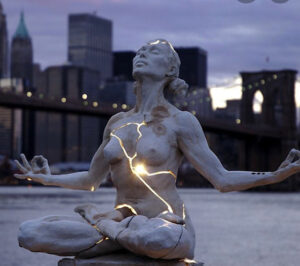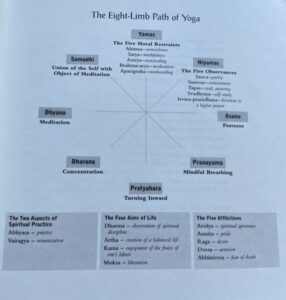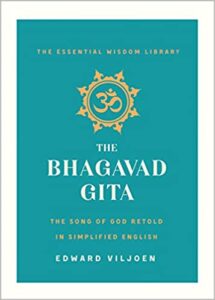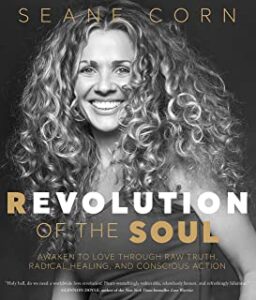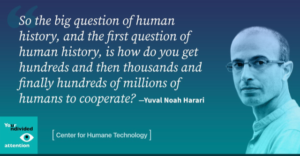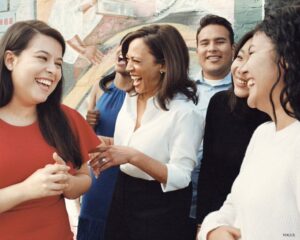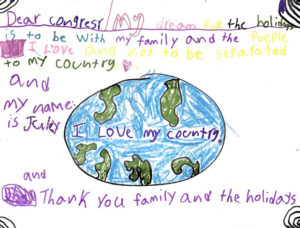DT’s consolidation of power. None of the other forces that might have checked the rise of a corrupt homegrown oligarchy can stop or even slow it. The institutional clout that ended the Presidency of Richard Nixon no longer exists. The honest press, for all its success in exposing daily scandals, won’t persuade the unpersuadable or shame the shameless, while the dishonest press is Trump’s personal amplifier. The federal courts, including the Supreme Court, are rapidly becoming instruments of partisan advocacy, as reliably conservative as elected legislatures. It’s impossible to imagine the Roberts Court voting unanimously against the President, as the Burger Court, including five Republican appointees, did in forcing Nixon to turn over his tapes. (Brett Kavanaugh, Trump’s nominee to succeed Anthony Kennedy, has even suggested that the decision was wrong.) Congress has readily submitted to the President’s will, as if legislation and oversight were burdens to be relinquished. And, when the independent counsel finally releases his report, it will have only the potency that the guardians of the law and the Constitution give it.
Behind these institutions lies public opinion, and we are quickly learning that it matters more than laws, more than the Constitution, more than the country’s supposedly inviolable founding principles. “If large numbers of people are interested in freedom of speech, there will be freedom of speech, even if the law forbids it,” George Orwell wrote, in “Freedom of the Park.” “If public opinion is sluggish, inconvenient minorities will be persecuted, even if laws exist to protect them.” During 1973, the year Watergate became a national scandal, facts changed the political views of millions of Americans, Nixon’s approval rating fell from sixty-seven per cent to less than thirty per cent, and his fate was sealed. In our time, large blocs of public opinion are barely movable: Trump’s performance in Helsinki—declaring himself on the side of Russia, against his own intelligence agencies and the integrity of American elections—received favorable reviews from eighty per cent of Republicans. Yet public opinion still plays a central role in safeguarding democracy, and it becomes decisive through voting. Demonstrations can capture attention and build solidarity, books can provide arguments, social media can organize resistance. But if the Republicans don’t suffer a serious defeat in November, Trump will go into 2020 with every structural advantage.
Democrats have a habit of forgetting to vote between Presidential elections. Republican turnout has exceeded or equalled Democratic turnout in very midterm since 1978, no matter which party held the Presidency, with an average margin of three per cent—more than enough to decide control of Congress in a closely divided election. The demographic groups that are least likely to vote—young people, Latinos, and those with a high-school education or less—tend to be Democratic constituencies. This tendency has been especially stark in the past two midterm cycles: in 2014, the turnout among eligible voters aged eighteen to twenty-nine was seventeen per cent—one in six. The disappearing Democratic voter also had an effect on the latest Presidential election, when, for example, African-American turnout dropped almost five per cent from 2012—a crucial difference in the three key states that gave Trump the Electoral College.
Republicans, for their part, don’t always entrust their hold on power to democratic methods. Since 2010, nearly half of the states have passed laws that make it harder to vote—from restrictions on early voting to I.D. requirements, mandatory proof of citizenship, and purges of voting rolls. The purpose of these laws is not to fight a mythical epidemic of fraud but to depress turnout of normally Democratic constituencies. They show incremental signs of success: a government study found that new laws reduced turnout in 2012 in Kansas and Tennessee by two or three per cent, notably among young and black voters. Other states have expanded the franchise, particularly to former felons, but Republican control of two-thirds of state legislatures and the shift of courts to the right give the momentum to efforts to curtail voting.
Gerrymandering is another effective tool for staying in power. The Brennan Center for Justice recently released a report on the effects of redistricting in states like Michigan, North Carolina, Ohio, and Texas. Algorithmic mapping has grown so precise that Republican legislatures have created a sixteen-seat advantage in the House of Representatives that remains impervious to standard electoral pressures. In November, just to achieve a bare majority, Democrats will have to win the national congressional vote by nearly eleven per cent. (Other studies put the number at around seven per cent.) And legislatures elected this year will redraw state and federal districts after the 2020 census. There’s a thick seawall standing in the way of a blue wave.
But it’s self-defeating to exaggerate the external obstacles: in 2016, Democratic turnout declined in states with and without new voter restrictions. Gerrymandering is a time-honored practice of both parties—look at Maryland’s House delegation. Unfettered money in politics doesn’t always favor Republicans, let alone guarantee victory—Hillary Clinton raised twice as much as Trump did. The greatest obstacle to voting is the feeling that it won’t matter, and that feeling seems to be more prevalent among Democrats.
In some cases, that sense may be based on overconfidence and insularity—a presumption that the other party’s outrages will automatically disqualify it in voters’ eyes. More often, it comes from a belief that politics doesn’t change anything in people’s lives. For two generations, the Republican Party has been an expression of grassroots conservatism, most recently the fever that’s ceded the Party to Trump. Meanwhile, the Democratic Party has grown less connected to its voters. It’s like a neglected building, perennially on the edge of collapse, which left-leaning Americans occasionally use for some purpose and then abandon.
This year, something seems to be changing. The new faces among Democratic candidates, the new energy behind them, suggest a party of members, not squatters. But, come November, they will have to vote. It’s the only thing left. ♦
The disturbing world of Jim Carrey’s anti-trump cartoons.
(Holed up in his L.A. home, the actor sketches furiously, and watches lots of cable news.)
George Bethea
House Republicans have called for the impeachment of Rod Rosenstein, the Deputy Attorney General, who is overseeing the Russia investigation, but his defenders are speaking out. Jeff Sessions, the Attorney General, has called Rosenstein “highly capable,” while Sally Yates, the former acting Attorney General, said that the impeachment effort would “undoubtedly fail.” Perhaps the most impassioned testimonial came from the actor Jim Carrey, who drew a picture of Rosenstein as a saint with a halo, invoking early Christian art. Carrey tweeted a photo of the drawing to his nearly eighteen million followers, with an earnest plea: “I hope there are other Republicans like you who will defend us against this thuggish lot.”
Since 2016, Carrey has created more than a hundred cartoons protesting the Trump Administration, a pastime that borders on the obsessive. “I fight him to the end,” he said recently, citing the Bhagavad Gita. “It’s my Arjuna moment—my responsibility to pick up the sword.”
Carrey was at his home in Los Angeles, a one-story ranch-style house where he lives alone. (On this day, two employees and a publicist were on hand.) Now fifty-six, he wore a black T-shirt and cargo shorts. His hair was shaggy. He’s still acting—he’d spent the previous afternoon on the set of an upcoming Showtime series he’s starring in, “kidding”, directed by Michel Gondry—but, like everyone else these days, he watches a lot of cable news.
He sat down near a large television in his living room. “Right now, everybody is laser-focussed on every detail of this Administration,” he said. “And I am, too. I read news online, but mostly I watch MSNBC. They’re flawed, but Rachel Maddow is really good.” He sketches while he watches: wonky portraits, satirical headlines, grotesqueries. “It makes me feel better if I can alchemize all of this,” he said. “Turn it into something creative and make people on the Twitter feel good.”
Besides cartoons, Carrey also makes abstract paintings. The walls of his house are covered in his own work: Technicolor images streaked onto mirrored surfaces, or canvases that have been slashed and stitched. Some are signed “Church of FFC.” (The acronym stands for “Freedom from Concern.”) Though he was an artistic child, he didn’t start painting seriously until seven years ago, he explained, “in the midst of heartbreak.” The cartooning started the day before the 2016 Presidential election. “It was in the middle of the killer-clown phenomenon,” he recalled. He shouted to his art manager, in the next room. “Linda, can you find that killer-clown sketch?”
Linda replied, “The killer clown pressing the button, or the—”
“Pressing the button, yeah,” Carrey said, slightly impatient.
She brought over a drawing of Trump as a clown with a blue nose and fangs.
Politically, Carrey described himself as a “conservative Democrat, because I don’t like boundaries.” As a cartoonist, his humor tends toward the obscene. He flipped through a stack of sketches, and found a picture of Trump with a Russian flag planted in his rear end. “I did that one before the Helsinki meeting,” he said. “It was a prediction.” There were drawings of all the minor players: Sean Hannity as a manatee, Trey Gowdy as an insect, Adam Schiff as a Ken doll dropping his pants. (Carrey found the ranking member of the House Intelligence Committee to be insufficiently animated on TV. “Show some passion!” he wrote in the caption. “We’ve had it with your calm, reasonable manner! make some f’ing noise!!!”) His position affords some flexibility. “I don’t work for a publication, so I’m allowed to do crude things, which I enjoy,” he said. “Twitter doesn’t mind.” Lingering on two Munch-esque portraits of Rudolph Giuliani, mid-scream, Carrey said, “I love these Giuliani images.” He pointed to his subject’s bridgework: white on top, brown below. “These people don’t bother to dye the bottom teeth.”
Carrey said that, as an actor, he’d most like to play Paul Manafort. “When I see Manafort walking into the courtroom, I’m, like, ‘Does anybody else notice that he’s, like, a frigging alien in a skin suit?’ Hasn’t studied his subject.” He stood up and did an impression, legs and arms akimbo. “He’s an interesting character, because he hasn’t visited his actual being in a long time. He’s been consumed by a maelstrom of future chaos.”
Carrey called out to another employee. “Brogan,” he said. “Can you bring up Roy Moore? You know, the little one? It’s in there.”
Like many people in show business, Carrey has crossed paths with Trump. He recalled meeting him at a New York fund-raiser. “He said, ‘Hey, Jim.’ I said, ‘Hey, Donald.’ Later, I rented his ice rink for a Valentine’s Day skate. He was a fine guy when he was a reality-show host.” He returned to his sketch pad. A more subtle idea had occurred to him. “I started drawing a cartoon this morning that’s just an empty desk and chair on the floor of the Senate,” he said. “I don’t know what the caption will be yet.” ♦
